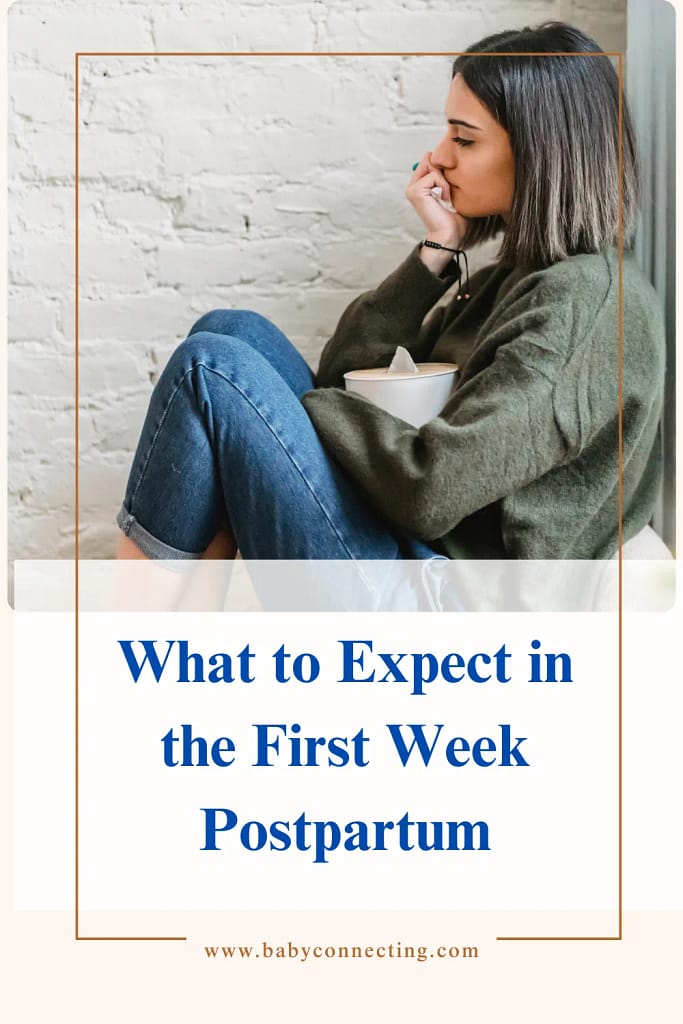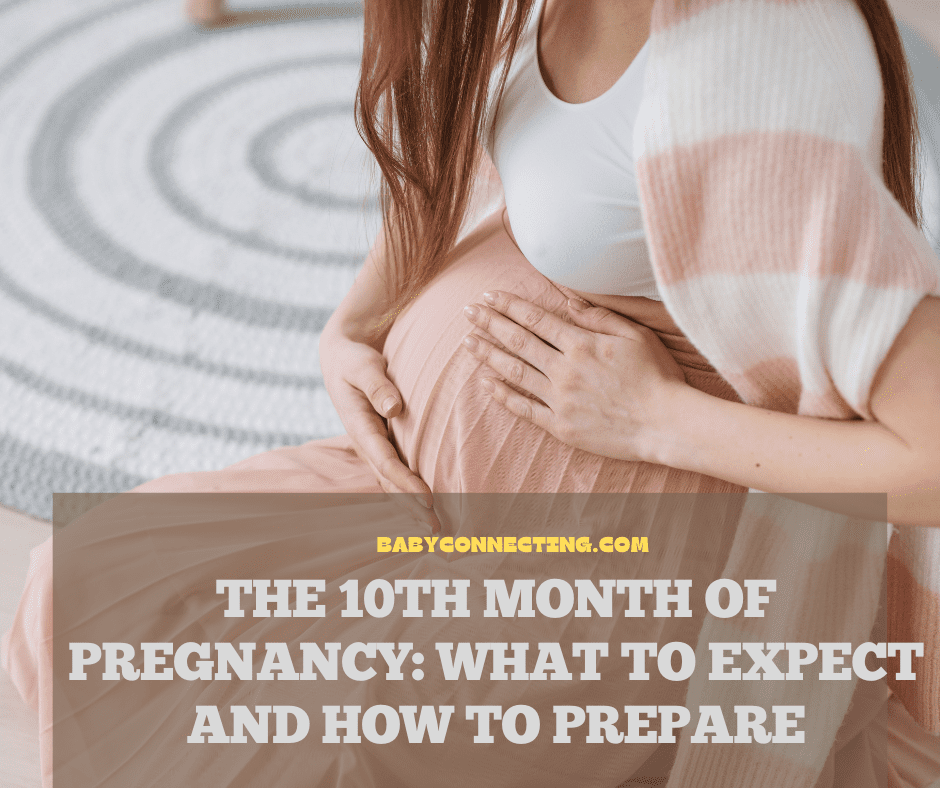What to Expect in the First Week Postpartum
The first week postpartum is a whirlwind of emotions, physical recovery, and adjustment to life with a newborn. While it’s an incredibly rewarding time, it can also be overwhelming as you navigate your healing process, care for your baby, and adapt to your new role as a parent. This guide provides an in-depth look at what to expect during the first week postpartum and offers tips for managing this critical period with confidence and ease.

1. Physical Recovery After Birth
Your body undergoes significant changes in the first week postpartum as it begins to heal and adjust after delivery. Here’s what you can expect:
1.1. Vaginal Birth Recovery
Bleeding (Lochia): Postpartum bleeding is normal and can last for up to six weeks. In the first week, expect heavy bleeding that gradually decreases. Use heavy-duty pads and avoid tampons.
Perineal discomfort: If you had a vaginal tear or episiotomy, the area may feel sore. Ice packs, sitz baths, and pain relievers can help.
Cramping: Uterine contractions (afterpains) help your uterus shrink back to its pre-pregnancy size. These are more noticeable if you’re breastfeeding.
1.2. C-Section Recovery
Incision care: Keep the area clean and dry. Watch for signs of infection, such as redness, swelling, or unusual discharge.
Pain management: You may be prescribed pain relievers to help manage discomfort. Follow your doctor’s instructions and avoid heavy lifting.
Mobility: Moving around gently helps prevent blood clots, but avoid strenuous activity.
1.3. Breast Changes
Milk production: Your milk typically comes in 2–4 days after birth. Your breasts may feel engorged and tender.
Nipple soreness: Breastfeeding can cause discomfort initially, but proper latching techniques and nipple cream can help.
Leaking: Nursing pads can keep you comfortable and prevent wet spots on your clothes.
2. Emotional Adjustments
The postpartum period is an emotional rollercoaster, and it’s important to acknowledge and address your feelings.

2.1. Baby Blues
Mood swings: Hormonal changes can cause sudden shifts in mood, including tearfulness, irritability, and anxiety.
Duration: The baby blues typically last a few days to two weeks and resolve on their own.
Self-care: Rest, eat nutritious meals, and seek support from loved ones.
2.2. Postpartum Depression
Signs: Persistent sadness, difficulty bonding with your baby, or feelings of hopelessness may indicate postpartum depression (PPD).
When to seek help: If symptoms persist beyond two weeks or worsen, consult a healthcare provider.
2.3. Bonding with Your Baby
Skin-to-skin contact: This helps regulate your baby’s temperature, heart rate, and stress levels while fostering bonding.
Learning cues: Spend time observing your baby’s hunger and comfort cues to build a strong connection.
3. Caring for Your Newborn
The first week postpartum is all about getting to know your baby and establishing routines.
3.1. Feeding
Breastfeeding: Newborns feed every 2–3 hours. Focus on proper latch and alternate breasts to prevent soreness.
Formula feeding: Prepare bottles as needed and ensure they’re cleaned and sterilized properly.
Cluster feeding: Babies often feed more frequently during growth spurts, which is normal and temporary.

3.2. Sleeping
Newborn sleep patterns: Babies sleep 16–18 hours a day but wake frequently for feedings.
Safe sleep practices: Always place your baby on their back in a crib or bassinet with a firm mattress and no loose bedding.
3.3. Diapering
Frequency: Expect to change 6–10 diapers per day.
Meconium: In the first few days, your baby will pass thick, tar-like stools. This transitions to softer, yellowish stools once milk is digested.
Diaper rash: Keep the area clean and dry, and apply diaper cream as needed.
4. Establishing a Routine
While the first week is unpredictable, creating a flexible routine can help you feel more in control.
4.1. Track Feedings and Diapers
Use an app or notebook to log feedings, diaper changes, and sleep patterns. This helps you identify your baby’s needs and monitor their health.
4.2. Rest When You Can
Sleep deprivation is common in the postpartum period. Rest whenever your baby naps, and don’t hesitate to ask for help with household tasks.
4.3. Limit Visitors
While loved ones may want to meet the baby, prioritize your recovery and bonding time by limiting visitors in the first week.
5. Physical and Emotional Self-Care
Caring for yourself is just as important as caring for your baby.
5.1. Nutrition
Eat balanced meals with plenty of protein, whole grains, fruits, and vegetables.
Stay hydrated, especially if you’re breastfeeding.
5.2. Movement
Light activities like short walks promote circulation and boost mood. Avoid strenuous exercise until cleared by your doctor.
5.3. Mental Health
Practice mindfulness or meditation to reduce stress.
Seek emotional support from a partner, family, or a postpartum support group.
6. Partner and Family Involvement
The first week postpartum is a family effort. Involve your partner or loved ones in caring for your baby and supporting your recovery.
6.1. Partner’s Role
Help with diaper changes, feedings, and soothing the baby.
Provide emotional support and encouragement.
6.2. Delegating Tasks
Ask for help with cooking, cleaning, or running errands.
Accept offers of assistance from family and friends.
7. When to Call Your Doctor
Certain symptoms in the first week postpartum require immediate medical attention:
7.1. For You
- Heavy bleeding (soaking a pad in an hour or passing large clots).
- Fever or chills, which could indicate an infection.
- Severe pain or swelling in your legs, which may signal a blood clot.
- Symptoms of postpartum depression.
7.2. For Your Baby
- Persistent jaundice (yellowing of the skin or eyes).
- Difficulty feeding or low energy.
- Fewer than six wet diapers per day by day five.
- High fever or difficulty breathing.
8. Embracing the Journey
The first week postpartum is a time of adjustment, learning, and growth. It’s normal to feel overwhelmed, but remember that every parent experiences challenges. Celebrate small victories, seek help when needed, and trust that you’re doing your best for your baby.
Conclusion
The first week postpartum is a period of recovery, discovery, and bonding. While it comes with physical and emotional challenges, it also marks the beginning of a beautiful new chapter in your life. By understanding what to expect and prioritizing self-care, you can navigate this time with confidence and love.
Remember, you’re not alone in this journey—lean on your support system and seek professional guidance when necessary. Embrace the ups and downs, and cherish the moments of connection with your newborn as you embark on the incredible adventure of parenthood.


